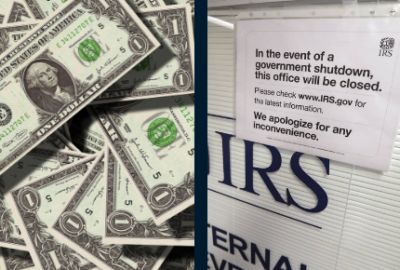
Thrill of victory or agony of defeat: How will possible pay raise and shutdown turn out?
We’ll know soon enough about the latest shutdown, but the pay raise is a little more complicated. H.R. 790 passed the House easily but has remained stagnant in...
Working for the government has got to be exciting, and rewarding too, right?
Where else could you face the prospect of a second payless furlough and shutdown in a month, even as the bosses were seriously debating whether to give you a nice pay raise? Only with Uncle Sam!
There are a lot of jobs, from the State Department to NASA, the FBI and Drug Enforcement Administration, that are unique to the federal government. The first Earthling on the moon, lest you forget, was a federal government employee with health benefits just like you.
The government is also a stand-alone employer in many ways, including the fact that it can be offering (or at least working on a plan for) a pay raise both before, during and after it has furloughed hundreds of thousands without pay and forced hundreds of thousands to work — also without pay.
The government as an employer is also unique because its CEO and board of directors are politicians who, in addition to doing great things for America, are also obsessed with making the other political party look bad. That means getting themselves re-elected as often as necessary.
While many demand that the government be run like a business, few Fortune 500 operations would shut down and furlough 800,000 employees for 35 days, then pay both those who were forced to work and those required to stay home. Even fewer would pay those employees weeks or months late enough that many of them now face major financial and personal problems.
We’ll know soon enough about the latest shutdown, but the pay raise is a little more complicated. Earlier this week we got an email from James M, a federal worker in Wilmington, Delaware, who even suggested today’s headline:
“Please help me understand the congressional bill process. On Jan. 30, the House passed H.R. 790 on a retroactive 2.6 percent pay raise for federal employees. The bill passed along party lines and there were no Republican co-signers. Following passage, the bill was sent to the Senate on Jan. 31. It appears there has not been any actions taken on the bill since Jan. 31.
“Will the house bill be debated within a Senate committee (appropriations) or will the Republican leadership choose to simply ignore the bill and let it die?
“It seemed so promising when the House debated and passed the bill. I suppose I was too naive to believe that the Senate would take up the measure. Can you shed any light on the matter? Is there still hope for a congressional-supported federal employee pay raise for 2019?”
The question is great, but I didn’t have a clue. So I passed the buck to John Hatton, director of Legislative and Political Affairs for the National Active and Retired Federal Employees Association. His quick response is as follows:
“On H.R. 790, a few things. First, the bill was amended prior to House floor consideration to apply on the date of enactment, rather than retroactively. Second, the bill passed mainly along party lines, but 29 Republicans did support the bill. Third, the bill should eventually be referred to the Senate Homeland Security and Governmental Affairs Committee. Sen. [Chris] Van Hollen’s (D-Md.) identical bill, S. 262, has already been referred to the committee.
“However, I do not expect either H.R. 790 or S. 262 to be considered by the Senate in committee or on the floor. Rather, I expect any pay raise — none, 1.9 percent, 2.6 percent or otherwise — to be settled by the spending agreement that has just been reached for the remaining [fiscal] 2019 appropriations bills. Both the Senate and House have separately included a 1.9 percent pay raise in previously passed appropriations bills, and that has historically been the path for passing federal pay rate adjustments. With the text being written now, we should know soon.”
Nearly Useless Factoid
By Amelia Brust
Michelangelo di Lodovico Buonarroti Simoni, or just Michelangelo, was, in addition to being a master visual artist a respected wordsmith in his lifetime. He wrote hundreds of sonnets and madrigals on themes ranging from sex and aging, to his overactive bladder waking him up in the morning. The writings were not formally published but circulated throughout 16th-century Roman society.
Source: History.com
Copyright © 2024 Federal News Network. All rights reserved. This website is not intended for users located within the European Economic Area.
Mike Causey is senior correspondent for Federal News Network and writes his daily Federal Report column on federal employees’ pay, benefits and retirement.
Follow @mcauseyWFED




